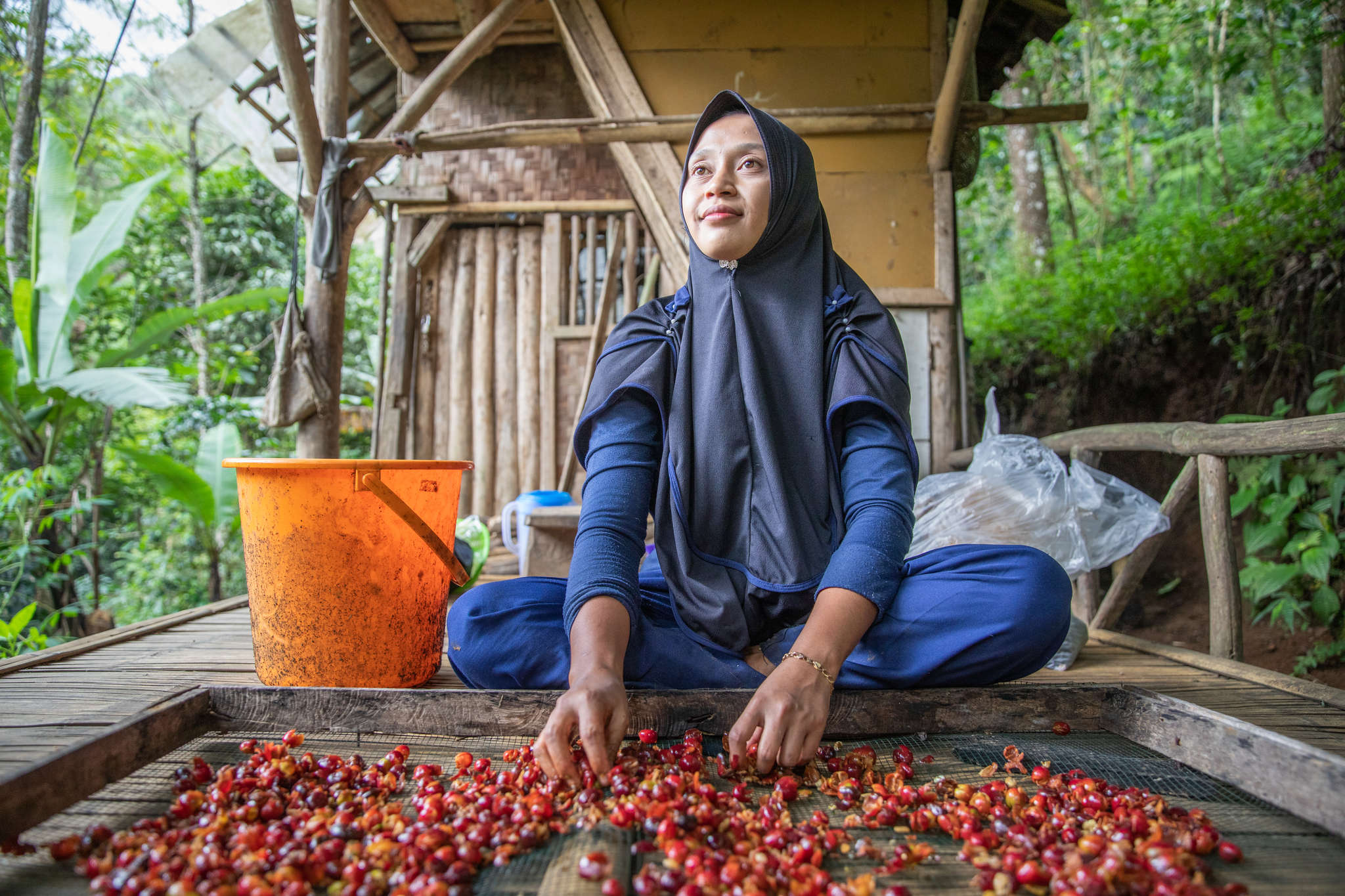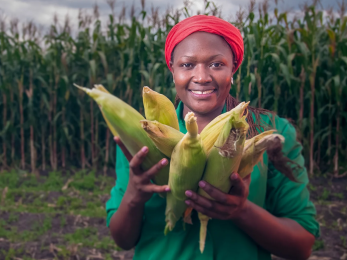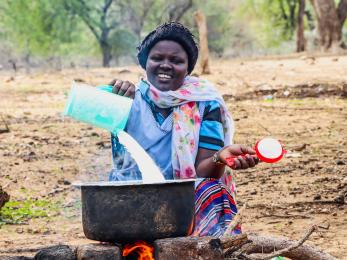New techniques protect herders’ traditional way of life
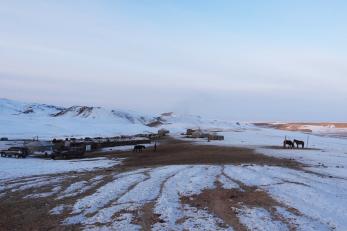
In southwest Mongolia, the Gobi-Altai Province is so named for the meeting of the Gobi Desert with the Altai Mountains. The mix of soaring snow-capped mountains and sweeping sand dunes makes for a stunning landscape — but a tough life for residents trying to raise livestock between two harsh environments.
Few employment opportunities and mining resources mean most people depend on their animals to feed their families and make a living. But a devastating dzud hit this region in 2010 — little grass grew during the dry summer, followed by overwhelming snowfall during winter. What little grass the animals might have had was buried in snow; one-third of all livestock starved or froze to death.
In the wake of this natural disaster, 35-year-old Bayraa is known as a “champion” herder here. He developed a custom nutrient-rich fodder to help his sheep and goats survive the dzud, and as he watched others’ sheep perish around him, designed a plan to help neighbors start over by giving them some of his animals in exchange for labor.
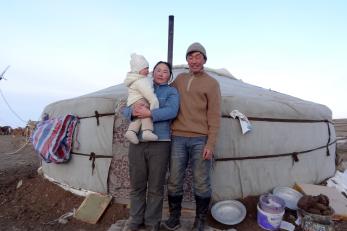
Today, our team is visiting Bayraa and his family to see a new experiment in action — coats. He has volunteered to pilot a Mercy Corps initiative to protect sheep and goats during winter with specially-designed coverings, part of our efforts to improve livestock health in Mongolia. It’s not always easy for traditional, rural herding communities to embrace change — but Bayraa is adamant about trying progressive techniques and sharing their successes.
“Traditionally, herders do not cover their animals,” he said. “But also traditionally, herders get less income when their products are poor quality from a hard winter. Or traditionally, we would lose all our animals in dzud. Sometimes traditions need to change.”
A lucky home
We had driven two hours — the last hour on dirt tracks — to Bayraa’s ger, the traditional tent-like nomadic dwelling in Mongolia, and arrived as the sun started to rise. Electricity reached this remote area just two years ago, and there is no mobile phone reception. So we arrive unannounced — though people are used to seeing Mercy Corps staff and welcome the surprise visits.
Smoke is coming from the chimney, so we know the family — or at least mom — is awake. Indeed, Bayraa and his wife, Urantuya, are just getting out of bed, while their one-year-old daughter is still fast sleep, gently snoring on the single mattress the family shares each night on the floor.
As Urantaya prepares salty milky tea on the single stove over the ger’s fire, the milk boils over. My Mongolian colleagues and the family erupt in excited chatter — it’s lucky. Milk boiling over symbolizes an abundance of blessings for the people inside the ger, I am told.
With such luck, I am not surprised at Bayraa’s success. As he talks about his achievements, he is humble, yet clearly proud. His true joy is training racehorses. As a boy, he learned from his father and grandfather, and now his own 13-year-old son is eager to join him. What stands out is his attention to the comfort of his animals.
“Strange idea” yields healthier animals
Traditionally Mongolian herders move their herds to pasture daily, bringing them into basic wooden shelters at night, with no additional coverings during winter. Even in a relatively good winter, harsh temperatures, icy winds and scarce food greatly reduce the quality of the sheeps’ coats and general health for future wool and meat production. In the long run, this means herders get less money for their raw materials — when they don’t lose the animals completely.
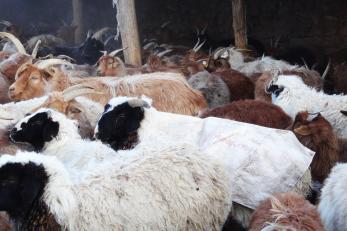
Simply covering sheep and goats in blankets is fraught with danger: Sweat will cause the animal to freeze to death. Mercy Corps’ new coats are made from a breathable plastic, whisking away sweat while generating heat to keep the animal warm. They were designed by an Australian with experience in the practice (Australia is the largest wool producer in the world), and are handmade by a local woman’s group.
After fitting the new coats to his livestock, it was only a matter of hours before Bayraa’s neighboring herders rode over on their horses to find out what was going on.
“All herders watch each other with binoculars,” he explained. “After I put the coats on my sheep and goats, my neighbors were really worried about what I had done to my animals. To them, it was a really strange idea.
“For the first three days the goats without coats were scared of the goats with coats — they were very curious about the coats and tried to remove them with their horns. Now, though, they are used to it and don’t cause any trouble.”
Three months into the trial, herders have noticed their coated animals are returning home ahead of the flock, long before its dark. This is a sign that they need less food to stay healthy — one of the key benefits of the coats. Now that spring has arrived, herders will begin to assess whether the coats have bought a tangible improvement to their animals’ wool.
“I am not sure what will happen. I hope the coated animals weigh more and have better quality coats then the normal animals, and that their bodies are stronger and healthier. We will see what happens. But even if there is no difference I am proud to try new ways to help my animals and earn more income for my family.”
